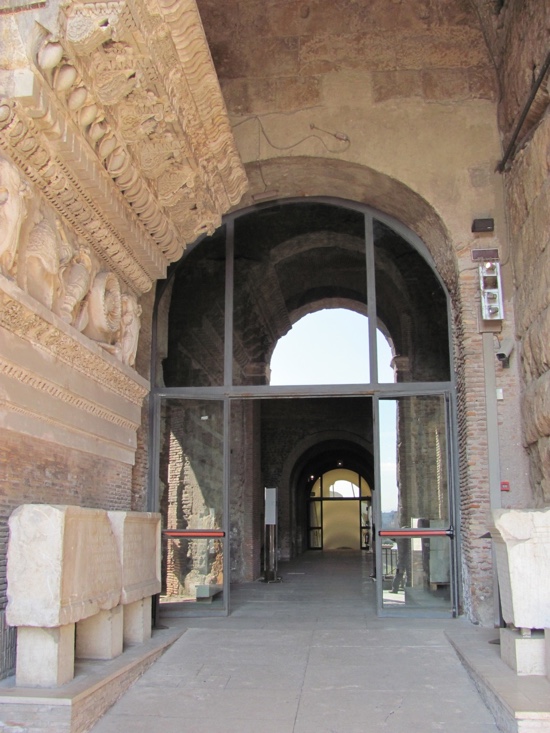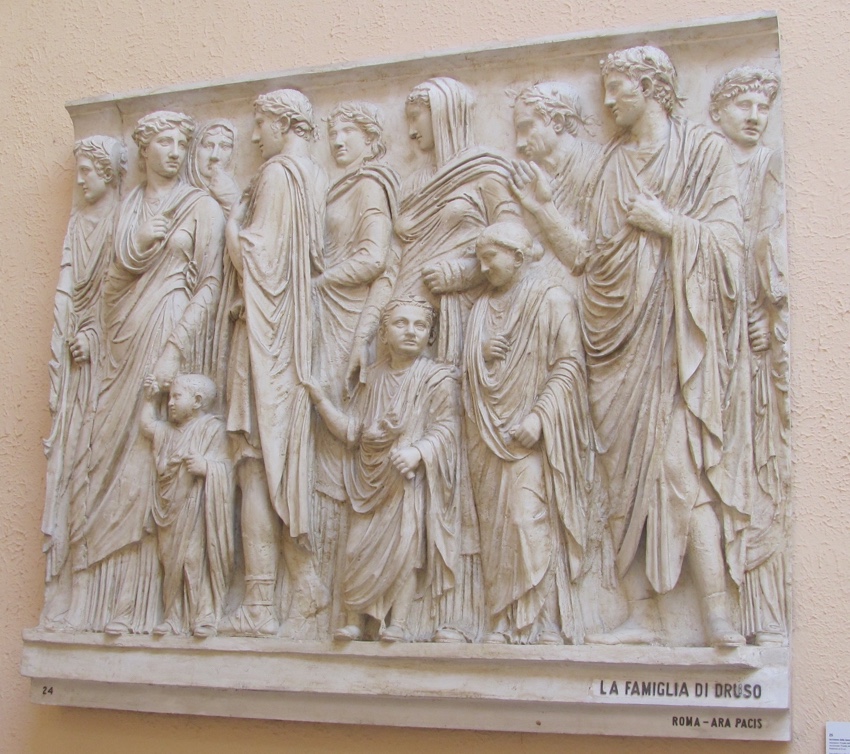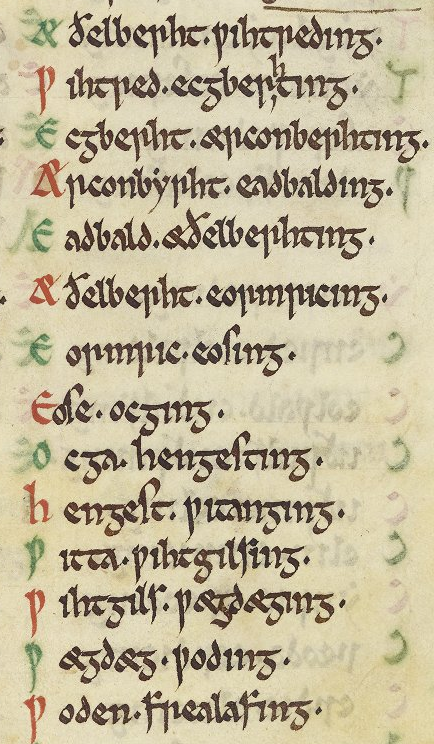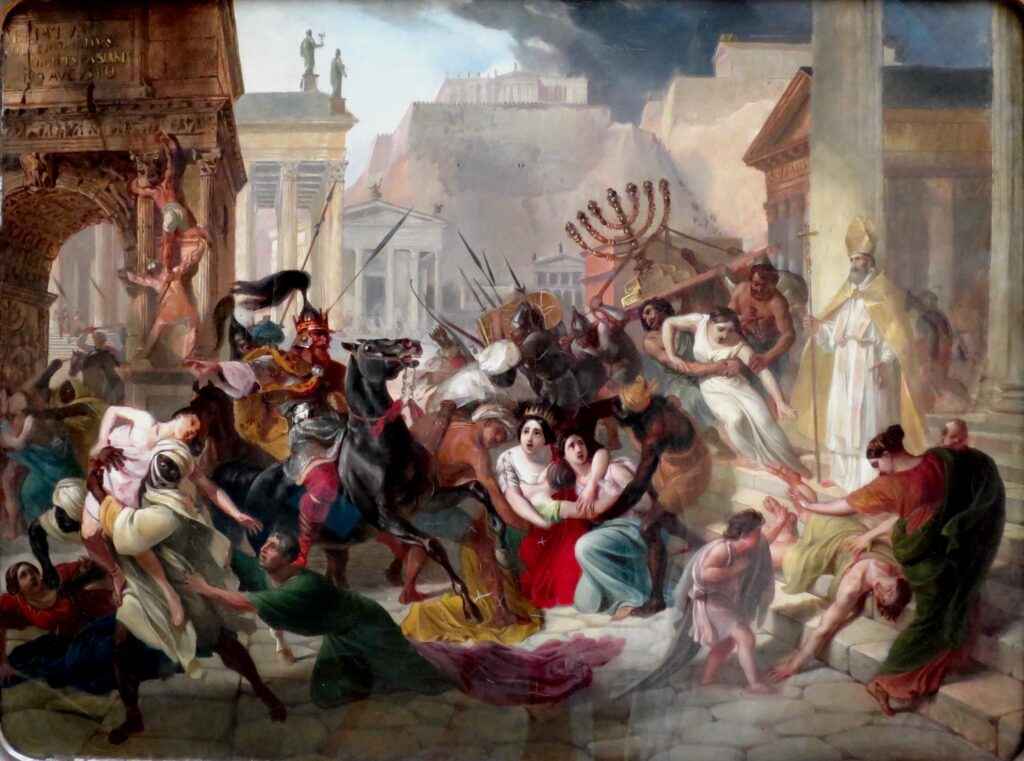Some Roma Novans, particularly the founding Twelve Families, pride themselves on their descent from named Roman ancestors such as Mitelus, Julia Bacausa, Apulius. As a small colony determined to survive in an unstable world, the children of those founders made a decision in the fifth century to keep records so that they did not intermarry to extinction.
Although Plutarch and Livy indicated the proscription of cousin marriage in the early Republic, it was legal in ancient Rome from the Second Punic War (218–201 BC) until banned by the Christian emperor Theodosius I in 381 in the West, and until after the death of Justinian (565) in the East, but the proportion of such marriages is not clear.
Roman civil law prohibited marriages within four degrees of consanguinity and whatever we know about emperors marrying their niece (Claudius) or sleeping with their sisters (Caligula), closer unions than between cousins were considered nefas (against the laws of gods and man) in ancient Rome.
Roma Novans changed inheritance to go through the female line (You can tell who a child’s mother is; you can’t necessarily guarantee its paternity.) and encouraged relationships with outsiders in order to produce the next generation thus ‘refreshing the gene pool’. Of course, they didn’t call it that then, but they’d raised enough agricultural stock to know about possible adverse consequences of inbreeding. It’s a nice piece of background to the stories that the modern Roma Novans could draw on ancient family records, so charting descent through the centuries is plausible in that timeline, even if it is a fictional one. 😉
Back to reality…
What is Descent from Antiquity (DFA) and its controversies?
In European genealogy, a ‘descent from antiquity’ is a proven unbroken line of descent between specific individuals from ancient history and people living today.
It’s a gloriously romantic idea. Who wouldn’t want to claim Julius Caesar, Cornelia Africana, Livia Augusta, Trajan or Marcus Aurelius (insert a Roman of your choice here) as their ancestor? You may even by a quirk of fate have a drop of their blood in your veins, but you wouldn’t know it.
Most genealogical records in Europe only date back as far as the 1500s, unless you have noble, royal or aristocratic lineage, then you can probably reach back to the 11th or 12th century. The Anglo-Saxons, uniquely among the early Germanic peoples, preserved royal genealogies; a number of them date from the 8th to 10th centuries.
Before then, we have a great big yawning gap and a lot of myths, legends and speculation.
Individuals may indeed have a family legend that traces their lineage back to Roman times, but there are no currently available historical records to verify or dispute these.
Roman bureaucracy and record-keeping was famous and comprehensive, wasn’t it?
Yes, they were, especially when it came to recording consuls, censuses, tax, trade, property ownership and transfers, but the vast majority of those records have been lost. Such records, kept in archives, tended to be pillaged and/or destroyed – especially once Roman-governed territory was conquered by ‘barbarians’.

Inside the Tabularium, Capitoline, Rome – the official records office of ancient Rome (Author photo)
Despite this widespread loss, a few records survived. Most have been transcribed and are kept in special archives, libraries, or universities. However, of the surviving records, few contain known or relevant genealogical information. In other words, available Roman records don’t contain that much information that would help you add an ancestor to your family tree.
Mix in the Roman practice of adoption of heirs and duplication of names in families and any remaining puddles of information become even more muddy.
The widespread disappearance during the sacking or looting of Roman cities especially towards the final collapse of empire is depressing. Ancient conquering peoples such as the Franks, Goths, Alemanni were usually too busy with their fighting and looting to worry about saving important genealogically helpful documents.
Naming conventions changed over the centuries: the decline of the classic trinomina of the Romans, the ongoing use of Celtic tribal affiliation names, the single names with ‘son of’ or locality names of later groups broke many possible lines of family continuity.
As literacy fell, written records became scarcer and legends grew…
Nevertheless, some of those legends persist. The surname Neri was first found in the Tuscan hills in the city of Lucca in 1200, when the aristocratic Neri family were believed to be descendants of Roman Emperor Nero. Who knows?
In truth, Western Europeans are a mongrel lot and descendants from a mixture of ancient peoples: Celtic, Roman, Saxon, Franks, Normans, Goths of various sorts, Angles, Danes, let alone from incomers during the historical and modern periods. While modern DNA tests may indicate which groups our ancestors came from, our trail back to antiquity is lost.
Roma Nova is fiction, but I was not immune from the idea of being able to reach back through the centuries when I wrote the stories so I drew on the Roman instinct for recording everything. Somehow, the information survived. Retaining the essential nature and values of their society is crucial to the Roma Novans’ sense of who they are. And although we can’t know exactly who our distant ancestors were, the whole idea probably appeals strongly to us as well.
Alison Morton is the author of Roma Nova thrillers – INCEPTIO, CARINA (novella), PERFIDITAS, SUCCESSIO, AURELIA, NEXUS (novella), INSURRECTIO and RETALIO, and ROMA NOVA EXTRA, a collection of short stories. Audiobooks are available for four of the series. Double Identity, a contemporary conspiracy, starts a new series of thrillers.
Download ‘Welcome to Alison Morton’s Thriller Worlds’, a FREE eBook, as a thank you gift when you sign up to Alison’s monthly email newsletter. You’ll also be among the first to know about news and book progress before everybody else, and take part in giveaways.
















Leave a Reply